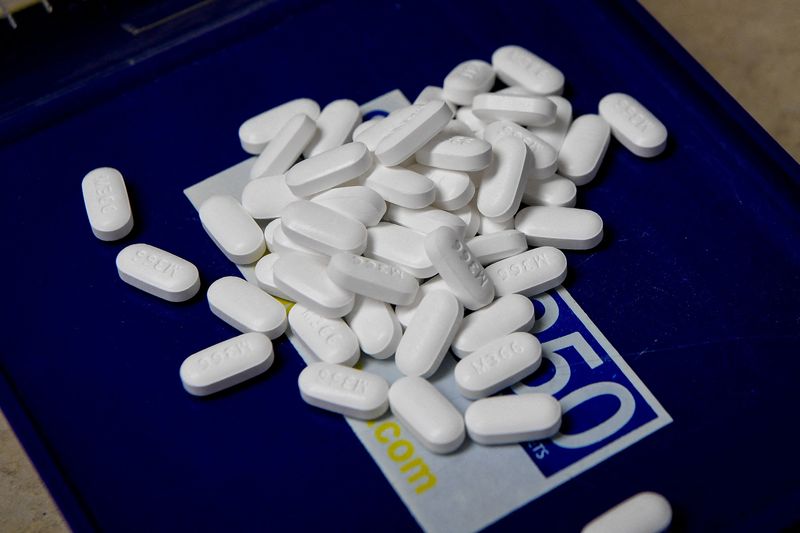By Ahmed Aboulenein
WASHINGTON (Reuters) -Fueled by the COVID-19 pandemic, the economic toll of the opioid addiction and overdose crisis on the United States reached nearly $1.5 trillion in 2020 alone and is likely to grow, a congressional report seen by Reuters shows.
Opioid-related deaths soared during the pandemic, including from the powerful synthetic painkiller fentanyl, exacerbating an already tragic and costly nationwide crisis that accounted for 75% of the 107,000 drug overdose fatalities in 2021, according to U.S. Centers for Disease Control and Prevention (CDC) data.
"It's equivalent to one 737 (jet) every day going down, no survivors. It's a mind boggling number of deaths," said Representative David Trone, who sits on the Congressional Joint Economic Committee (JEC) that issued the report.
The committee said in a Wednesday report that after adapting a method used by CDC scientists and adjusting for inflation, it found that the crisis cost the U.S. economy $1.47 trillion in 2020, a $487 billion increase from 2019.
The latest calculation represents a 37% increase from 2017, when the CDC last measured the cost.
"JEC is valuing all the various loss that happens with addiction. There's loss of productivity, folks in the job force, all the medical health costs, just a huge number of costs," said Trone, a Democrat who previously chaired the bipartisan U.S. Commission on Combating Synthetic Opioid Trafficking.
"The rise in fatal opioid overdoses in 2021 suggests the total cost is likely to continue to increase," the report said.
The report also highlighted racial inequalities within the crisis. Although opioid use is more common among white people, Black people accounted for 17% of U.S. fatal opioid overdoses in 2020 despite making up 12.5% of the population.
Black people have a harder time getting addiction treatment because they are less likely to have access to affordable healthcare and prescribed medications that can reduce the risk of fatal opioid overdoses, it said.
President Joe Biden announced on Friday nearly $1.5 billion to fund access to medications for opioid overdoses, sanctions against traffickers, and increased funding for law enforcement.
